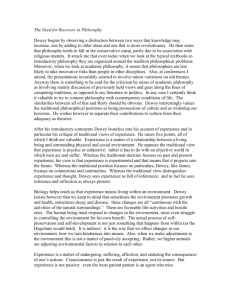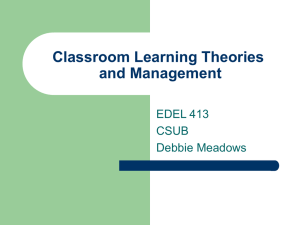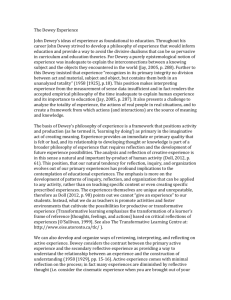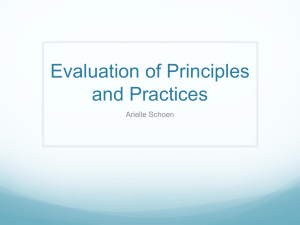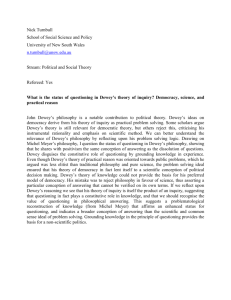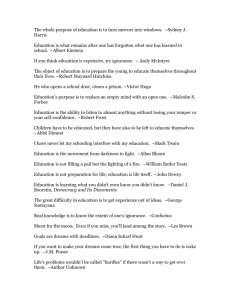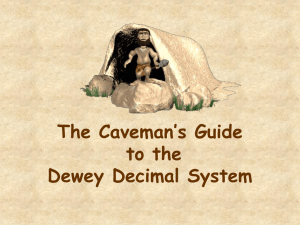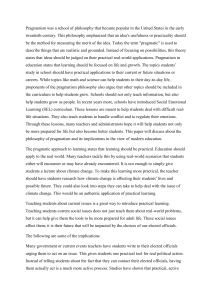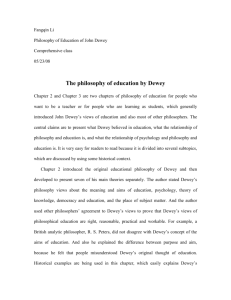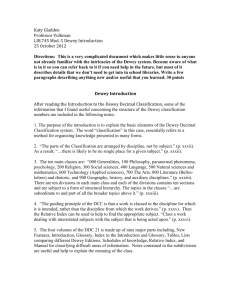John Dewey - MrGibbs.com
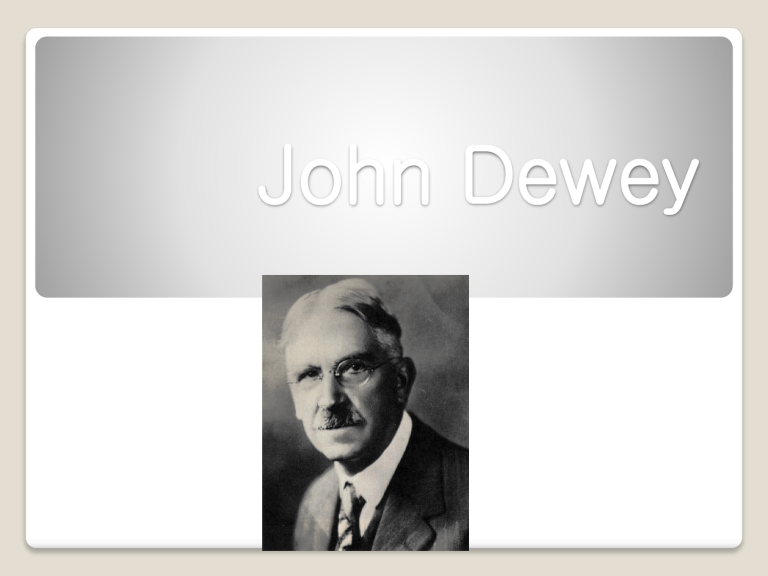
John Dewey
“Education is life itself.”
- John Dewey
Philosophy
Mr. Dewey believed that the core curriculum should encompass the students’ interests.
John Dewey approached education with a hands-on, cohesive philosophy, rather than teaching isolated topics which prevented learners from grasping the whole of knowledge.
Pragmatism
Pragmatism is the philosophy of considering practical consequences or real effects to be vital components of both meaning and truth.
One important aspect is fallibilism
Fallibilism is the philosophical doctrine that all claims of knowledge could, in principle, be mistaken. Some fallibilists go further, arguing that absolute certainty about knowledge is impossible
.
Wikipedia (2009)
Pragmatism - Instrumentalism
Dewey did not consider himself a pragmatist, but rather referred to his philosophy as Instrumentalism.
Instrumentalism: concepts and theories are measured as useful, not by whether they are true or false, but by how effective they are in explaining and predicting phenomena
Wikipedia (2009)
Philosophy
Students need to learn practical, pragmatic daily-life skills in order to build a better society.
Dewey wanted students to learn through experience and to think and reflect critically on their experiences.
Examples
Math could be learned by cooking, traveling, building things
History could be learned by experiencing field trips, museums, replicas
Reading can be learned through independently-selected literature
Current Day Evidence of this Theory
Vocational Technical School
Use of Scientific Method in classrooms
Kinesthetic Learning (role playing, nontraditional learning techniques)
Integrating Technology into lessons
end

